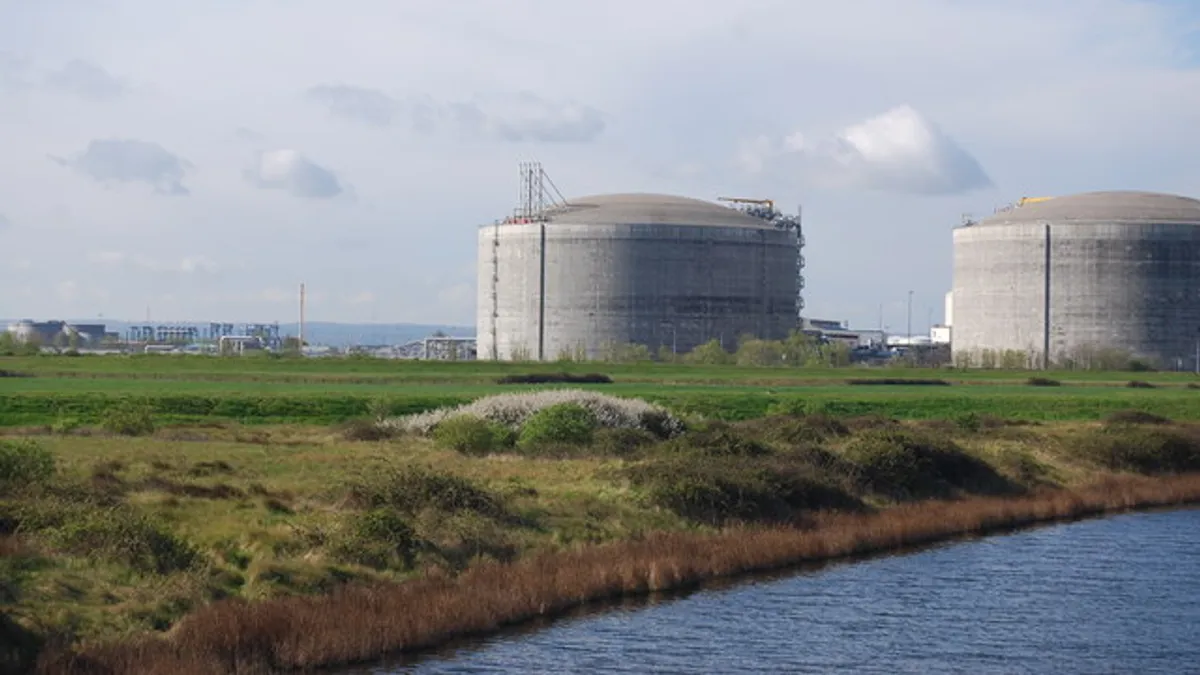Dive Brief:
- Consolidated Edison on Wednesday proposed a slate of gas projects and programs aimed at addressing rapidly-growing demand in New York City and Westchester County, which the utility says requires a new pipeline to serve the region's energy needs.
- The utility wants to invest $305 million to fund efficiency incentives for customers and the development of up to three renewable gas facilities that would turn food, yard and other waste into natural gas.
- Con Edison also plans on constructing two to five compressed natural gas and liquefied natural gas storage sites in Westchester County, aiming to reduce the need for conventional natural gas pipeline supplies by 40,000 dekatherms (Dth) on peak winter days.
Dive Insight:
This is not the first time Con Edison has addressed the tightening supply-demand balance in the area. Over the summer, New York regulators approved a $5 million gas demand response pilot aimed at cutting peak demand over the next three years.
Demand response for natural gas is still a fairly new idea, but it is just one way gas utilities are stealing a page from their electric counterparts to develop "non-pipes solutions" that avoid the need for larger investments.
Con Edison insists that the region still needs a new pipeline, given the growing reliance on gas-fired power plants. But the utility says the package of strategies it has proposed to the New York State Department of Public Service would offset peak-day gas demand by 84,500 Dth, sufficient to avoid greenhouse gas emissions equivalent to 5 million tons of carbon dioxide over the life of the programs.
The efficiency and renewable gas programs will "help [the utility] maintain reliable service. ... However, these measures do not eliminate the need for a new natural gas pipeline to keep up with our region's energy needs," Marc Huestis, Con Edison's senior vice president of gas operations, said in a statement.
Con Edison's filing points to two factors driving the need for the programs: In the past six years, many customers have converted to gas from heavy fuel oils, meaning the utility has seen substantial growth in gas peak day usage, driven by firm heating customers on the coldest winter days.
The utility's filing also points to "permitting challenges recently encountered by pipeline projects that are necessary to supply the region's growing needs."
The utility has converted the heating systems of more than 7,500 large buildings in New York City from oil to gas and has begun converting buildings in Westchester County, according to Con Edison spokesman Allan Drury.
While many of the conversions are the result of regulations passed by the city in 2011, which required buildings to shift away from fuel oils No. 6 and No 4., Drury said there are also building owners shifting away from No. 2 fuel oil, which is lighter and cleaner to burn and was not covered by new regulations, solely due to economics.
To address the shortage, Con Edison is proposing to construct up to three "renewable" gas facilities that would reduce the need for conventional natural gas by up to 7,100 Dth on a peak winter day.
Another program would offer customers payments to encourage investments in energy efficient heating equipment, which Con Edison estimates could help reduce peak-day demand by up to 25,000 Dth. Helping customers with the upfront costs when they invest in heat pumps could reduce peak-day demand 12,400 Dth.
Con Edison said it already has similar programs, offering upgrades to residential, business and multi-family customers. The new incentives would build on those, and the company will direct some of the incentives toward low-income customers and government buildings.
Con Edison says the impact on customers would be modest: Once the program funds are spent, in 2025, the maximum bill increase would be about $2 — and that's before accounting for savings and environmental benefits created by the plan, the utility notes.















